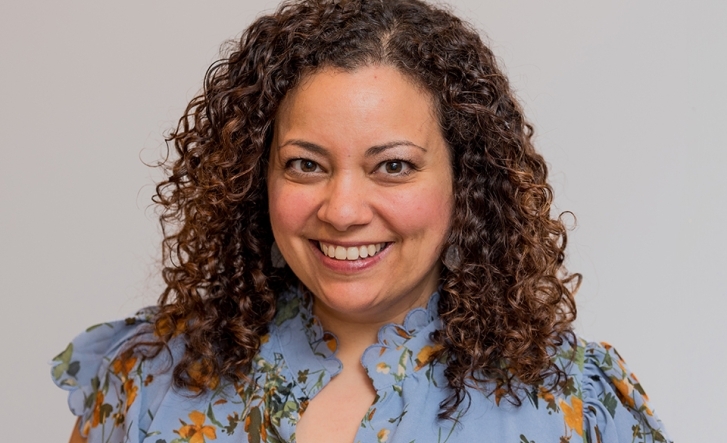Biology Alum Continues Research Collaboration
Stephanie Cabarcas-Petroski ‘07G, ‘09PhD, has come a long way since she graduated with her Ph.D. in Biology from St. John’s University. Dr. Cabarcas-Petroski is currently Associate Teaching Professor at Penn State Beaver. Over the past decade, she has continued her collaboration with former dissertation mentor and Professor of Biological Sciences Laura Schramm, Ph.D.

“We are always coming up with all of these ideas and projects when we ‘talk science,’” said Dr. Cabarcas-Petroski of the ongoing collaboration with Dr. Schramm.
Recently, Drs. Cabarcas-Petroski and Schramm - along with co-author Patricio I. Meneses, Ph.D. - published a paper in BMC Cancer, “A Meta-Analysis of BRF2 As a Prognostic Biomarker in Invasive Breast Carcinoma.”
The paper presents findings that suggest transcription factor BRF2 may be a prognostic biomarker in invasive breast carcinoma.
Their current article came out of research that Drs. Cabarcas-Petroski and Schramm began in spring 2019, although their collaboration has been fluid and continuous. “We always keep the lines of communication open,” said Dr. Cabarcas-Petroski.
After completing her Ph.D. at St. John’s, Dr. Cabarcas-Petroski pursued a postdoctoral fellowship at the Nation Cancer Institute – Frederick Campus. There, she conducted research on cancer stem cells and developed skills in bioinformatics research.
“Bioinformatics is a skill set that I don’t think I realized I would continue to use,” she said.
Following her postdoctoral position, Dr. Cabarcas-Petroski assumed a teaching position at Gannon University in 2012 because she wasn’t sure whether she wanted to continue along a research path. She found that she loved being in the classroom and moved into her current position at Penn State Beaver in 2014.
“My position at Penn State is ideal because I don’t have the pressure of the research requirement but can still pursue scholarly activity on my own terms,” she said.
She also welcomes the opportunity to incorporate her research, especially her bioinformatics research, into teaching.
Dr. Cabarcas-Petroski, who is originally from New York, attended High Point University in High Point, NC for her undergraduate degree. While applying to graduate programs in biology, she knew that she wanted to return to New York, and was offered a Graduate Assistance in Areas of National Need (GAANN) fellowship at St. John’s.
During her research rotations, Dr. Cabarcas-Petroski knew that she wanted to pursue cancer research and found a home in Dr. Schramm’s lab.
“It was a perfect environment for me because Dr. Schramm is a molecular biologist who incorporates cancer research,” she said.
In addition, she found Dr. Schramm to be a supportive and encouraging mentor.
“The environment in Dr. Schramm’s lab was the right balance of motivation and support,” she said. “Even at a time when graduate student mental health wasn’t on anyone’s radar, it was on hers and was something she made a priority.”
Dr. Cabarcas-Petroski became interested in biology as a child. “I always had an interest in science,” she said. “Biology feels like a puzzle to me, and I was constantly asking question about how everything worked.”
With encouragement from her parents, Dr. Cabarcas-Petroski – who is a first-generation college student – pursued a career in biology. “I never wanted to go to medical school,” she said, “but I was always interested in research and my parents always supported my love in biology.”
For students wanting to pursue a similarly research-focused career in the sciences, Dr. Cabarcas-Petroski encourages getting involved in a laboratory setting as early as possible. Her own formative experiences in research are an example of how a love for science can turn into a fruitful, ongoing collaboration that yields innovative findings.



